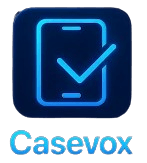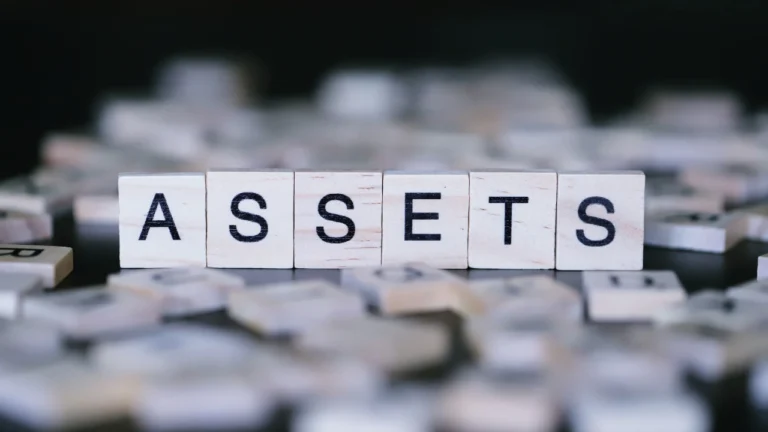Niagara Restitution Service Debt Collection Harassment❓
Niagara Restitution Service Debt Collection Harassment? Do you receive intrusive calls from Niagara Restitution Service? Perhaps their representatives have threatened to have you arrested or thrown in jail if you do not pay up. Niagara Restitution Service debt collection is a licensed third-party collector, and what this means is that they have the right to put calls through to you. If you currently find yourself on the receiving end of a string of harassing calls from Niagara Restitution Service, then read on because this post was made for you.
We all know that the consequences of debts can be quite dire. Debts affect people in different ways, from their relationships to their social lives, and even their mental health can get affected. If you do not dispute a debt within the specified timeframe, the company may legally continue with its collection efforts, which underscores the importance of timely action.
Debt collection representatives are people who represent debt collection agencies and try to get you to pay your debts. According to the Federal Trade Commission, people complain about debt collectors more than any other business service. This is because debt collectors usually cause consumers a lot of unease and discomfort. Many people complain about the never-ending calls and messages from them and how uncomfortable it makes them feel. If you’re being harassed by Niagara Restitution Service, you should know about your rights under the FDCPA.
The Fair Debt Collection Practices Act, also known as the FDCPA, protects consumers’ rights in the context of debt collection. In other words, debt collectors must adhere to a certain set of rules when they are pursuing consumers who owe money. If Niagara Restitution Service violate the FDCPA, you can sue them in court. Under the FDCPA, the offending debt collection agency is responsible for paying our attorney fees and you could receive statutory damages from $100 to $1000.00. Don’t let debt collectors stress you out, call us now. Consumers can take several actions to protect themselves from harassment, such as keeping records of all communications and reporting violations to the FTC.

Who is Niagara Restitution Service?
Niagara Restitution Service is a third-party debt collector located in Tonawanda, New York.
Niagara Restitution Service Address: 550 Fillmore Ave. Suite 2 Tonawanda N.Y 14150 Phone: 844-232-1318 / Fax: 716-260-2026
Niagara Restitution Service Phone Numbers:
- 📱 888-320-8167
- 📱 833-399-0906
- 📱 888-320-8167
For more information, click on the provided links to address any debt collection issues promptly.
Is Niagara Restitution a Scam?
According to the Better Business Bureau website, Niagara Restitution Service has been in business since 2010. There have been 6 complaints closed in the last 3 years and 1 complaint closed out in the last 12 months.

Your Rights Under The FDCPA: Identifying A Violation
The Fair Debt Collection Practices Act (FDCPA) is a federal law that protects your consumer rights regarding debts and the debt collection process. The FDCPA only applies to the collection activities that happen between third-party debt collectors and debtors.
According to the FDCPA, Niagara Restitution Service cannot engage in any of the following practices:
- ➡️ Calling you many times a day.
- ➡️ Calling you at odd hours (before 8 am and after 9 pm)
- ➡️ Disclosing your debt information to a third party.
- ➡️ Calling your place of work after placing them on notice that calls to your work are not prohibited.
- ➡️ Employing deceptive methods in a bid to get you to pay your debts.
- ➡️ Harassing and threatening you.
- ➡️ Using profane and obscene words on you.
- ➡️ Disregarding your letter asking them to cease further contact with you.
- ➡️ Refusing to give details like their name, address, and entity they represent.
- ➡️ Contacting you after you have asked them to only speak with your attorney.
- ➡️ Lying to you about a debt.
- If any of these practices are violated, it is important to consider filing a complaint to protect your rights and seek potential legal remedies.
File a Complaint:
If you believe you are being harassed by Niagara Restitution Service, file a complaint with relevant consumer protection agencies. The (CFPB) is a good place to start. Provide detailed information about the alleged harassment.
Consult Legal Advice:
If you believe your rights are being violated, consult with an attorney who specializes in debt collection practices. They can provide guidance on your specific situation and help you understand your options, including the potential legal consequences of such a violation.

Does Niagara Restitution Service Report To Credit Bureaus?
Legally, Niagara Restitution Service is within their rights if they report your debt to any of the credit reporting bureaus. There, however, are laws that govern what can be reported and prevent debt collectors like Niagara Restitution Service from misusing your credit information. The laws also prohibit them from trying to get you to pay up by threatening to destroy your credit. These set of laws are what is known as the Fair Credit Reporting act.
Consumers can contact Niagara Restitution Service via email for any disputes or issues.
Disputing the Debt: Should You Pay?
More than half of the consumers who receive a call from Niagara Restitution Service or many other debt collection agencies frequently complain that they do not owe the debt they are being contacted over. Of all the Niagara Restitution Service complaints that we receive, “Niagara Restitution Service” keeps calling me when I do not remember owing a debt,” seems to be the most prominent one.
This is quite surprising since the law clearly states that Niagara Restitution Service must provide you with certain information regarding the debt, they are contacting you to collect. The information should reveal:
- ▶️ The name of the original creditor to whom the money is owed
- ▶️ The amount you owe
- ▶️ Information about your right to dispute the debt
Note that it is crucial to keep this information for future reference and to be aware of the potential consequences of not disputing a debt.
If you do not get this information during the first debt collection call, then it must be sent within 5 days from the date of the first debt collection call you received from a Niagara Restitution Service phone number. If you don’t think the debt belongs to you, or you do not agree with the amount stated there, then you have a right to dispute the debt.
To dispute the debt, you must do so in writing within 30 days. The Niagara Restitution Service will provide further verification of the debt to prove that it is indeed yours.
During this time (while the debt is still being verified), it is against the laws of the FDCPA for a Niagara Restitution Service debt collector to try to contact you regarding the repayment of the debt in question.

No Response to Niagara Restitution Service: Potential Court Action
If you do not dispute the debt within the 30-day time period, then you may lose your right to dispute the debt at all, and Niagara Restitution Service may legally assume that the debt is indeed yours. It is crucial to understand that the company handling your debt has specific legal responsibilities, and timely action is necessary to protect your rights.
An attorney will be in a better position to look out for your rights and to ensure that the debt collection process goes smoothly.
As we mentioned earlier, you have only 30 days to dispute a debt or part of it. 30 days isn’t a lot of time. If you are confused about the process, then we advise you to contact a debt collection attorney to guide you through the process.
If you feel your rights have been violated, please call our office at (877)-700-5790.
Taking Action Against Debt Collection Harassment
If you’re experiencing debt collection harassment, it’s essential to take action to protect yourself. Here are some steps you can take:
- ➤ Document Everything: Keep a record of all interactions with the debt collector, including dates, times, and details of conversations. This will help you track any violations of the FDCPA and provide evidence if you need to file a complaint or take legal action.
- ➤ Verify the Debt: Request that the debt collector provide proof of the debt, including the amount, creditor, and any relevant documentation. This ensures that you are not paying for a debt that is not yours or is inaccurately reported.
- ➤ Dispute the Debt: If you believe the debt is inaccurate or unfair, submit a written dispute to the debt collector within 30 days of receiving the initial notice. This will halt collection activities until the debt is verified.
- ➤ Seek Legal Help: Consult with an attorney specializing in debt collection practices to understand your rights and develop a strategy to protect yourself. An attorney can provide guidance on how to handle the situation and ensure that your rights are not violated.
Remember, taking action against debt collection harassment requires persistence and documentation. Don’t hesitate to reach out to a professional for guidance.
Seeking Legal Help for Debt Collection Issues
If you’re struggling with debt collection issues, seeking legal help can be a crucial step in resolving the situation. Here are some reasons why:
- ➡️ Expert Knowledge: An attorney specializing in debt collection practices can help you understand your rights and navigate the complex laws surrounding debt collection. They can provide you with the information you need to make informed decisions.
- ➡️ Protection from Harassment: A lawyer can help you stop debt collection harassment and ensure that the debt collector is following the law. They can take legal action on your behalf if your rights are being violated.
- ➡️ Negotiation and Settlement: An attorney can negotiate with the debt collector on your behalf to reach a settlement or payment plan that works for you. This can help you manage your debt more effectively and avoid further harassment.
- ➡️ Court Representation: If necessary, a lawyer can represent you in court to protect your rights and interests. They can help you file a lawsuit if the debt collector has violated the FDCPA or other consumer protection laws.
Don’t hesitate to consult with an attorney if you’re experiencing debt collection issues. They can provide valuable guidance and support to help you resolve the situation.

Resolving Debt Collection Issues
Resolving debt collection issues requires a strategic approach. Here are some steps you can take:
- ▶️ Communicate with the Debt Collector: Respond to the debt collector’s initial notice and provide any requested information to verify the debt. Open communication can help clarify any misunderstandings and facilitate a resolution.
- ▶️ Negotiate a Payment Plan: If you’re unable to pay the debt in full, negotiate a payment plan with the debt collector that works for you. This can help you manage your finances and avoid further collection actions.
- ▶️ Consider Debt Consolidation: If you have multiple debts, consider consolidating them into a single loan with a lower interest rate and more manageable payments. This can simplify your debt repayment process and reduce the stress of dealing with multiple creditors.
- ▶️ Seek Credit Counseling: Non-profit credit counseling agencies can provide guidance on managing debt and developing a budget. They can help you create a plan to pay off your debts and improve your financial situation.
Remember, resolving debt collection issues takes time and effort. Be patient, persistent, and proactive in seeking solutions.
Protecting Yourself from Debt Collection Harassment
Protecting yourself from debt collection harassment requires knowledge and action. Here are some tips:
- ➤ Know Your Rights: Understand the FDCPA and your rights as a consumer, including the right to dispute debts and stop harassment. Being informed about your rights can empower you to take action against unfair practices.
- ➤ Document Interactions: Keep a record of all interactions with debt collectors, including dates, times, and details of conversations. This documentation can be crucial if you need to file a complaint or take legal action.
- ➤ Verify Debts: Request proof of debts and verify the accuracy of the information. This ensures that you are not paying for debts that are not yours or are inaccurately reported.
- ➤ Seek Legal Help: Consult with an attorney specializing in debt collection practices if you’re experiencing harassment or need guidance. An attorney can help you understand your rights and take appropriate action to protect yourself.
By taking these steps, you can protect yourself from debt collection harassment and ensure that your rights are respected.
CONSUMER RIGHTS LAW FIRM, PLLC
Consumer Rights Law Firm PLLC is a law firm that specializes in helping clients who are facing harassment from debt collectors. If you suspect that your debt collection rights are being trampled upon, contact our office to begin the process to stop the harassment you may currently be receiving from Niagara Restitution Service. Our office has been assisting consumers since 2010, and we have an A+ rating with the Better Business Bureau.
Call us at (877)700-5790 for immediate assistance.
FAQs
Who is Niagara Restitution Service and why are they contacting me?
Niagara Restitution Service (NRS) is a legitimate third-party debt collection agency based in New York, founded in 2010. They contact consumers about debts purchased from original creditors or lenders.
Is Niagara Restitution Service a scam or a real debt collector?
They are real and legitimate—registered since 2010—but many consumers report aggressive collection tactics that may feel harassing. Always verify your debt through written validation.
Can Niagara Restitution Service legally harass me with phone calls?
No. Under the Fair Debt Collection Practices Act (FDCPA), repeated calls, threats, or abusive language constitute harassment and are illegal.
What are common signs of harassment by Niagara Restitution Service?
Signs include frequent calls (multiple times a day), calls at odd hours, threats of arrest or wage garnishment, and contacting third parties about your debt—all prohibited under FDCPA.
What should I do if Niagara Restitution Service keeps calling me?
Document each call (time, number, content), send a written cease-and-desist or debt validation letter, and report ongoing violations to the FTC or CFPB.
Can I dispute or validate a debt with Niagara Restitution Service?
Yes. You have 30 days from initial contact to send a written dispute or validation request. During this period they must stop collection until the debt proof is provided.
Does Niagara Restitution Service report to credit bureaus and hurt my score?
Yes. They can—provided they lawfully purchased the debt. A collection entry may lower your credit score. You can dispute inaccuracies under the FCRA.
Can I sue Niagara Restitution Service for harassment?
Yes. If they violate FDCPA rules—such as harassment, threats, or improper disclosures—you may sue for damages and recovery of attorney fees.
How do I make Niagara Restitution Service stop contacting me?
Send a written cease-communication request. Once they receive it, they can contact you only to confirm cessation of tracking or to notify of legal proceedings.
What phone numbers are used by Niagara Restitution Service?
They may use numbers like 888-320-8167, 833-399-0906 or 844-232-1318. Block these numbers and rely only on written communication.







